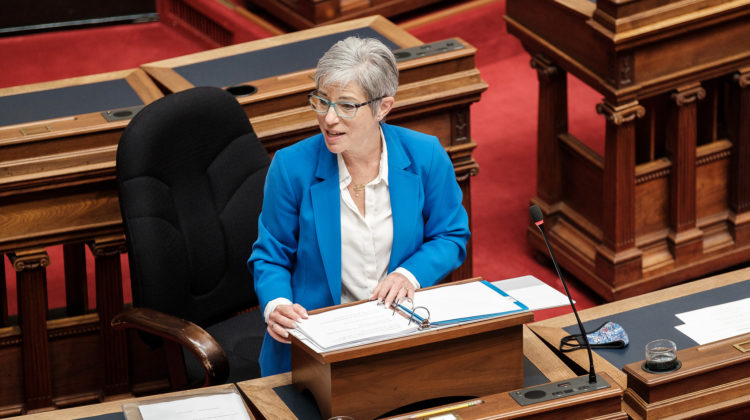The 2022 provincial budget for BC has been announced.
Minister of Finance Selina Robinson said there is a projected $5.5 billion deficit for the 2022-23 fiscal year, but an updated forecast for the 2021-22 budget with a $483 million deficit.
Several highlights for this year’s budget include:
- Saving parents money on full-day child care, preschool, and before-and after-school care by cutting average fees to approximately $20 per day, while delivering 40,000 new licensed spaces in the next seven years.
- Better health care closer to home, with new urgent and primary care centres, and cancer care centres in preliminary planning stages in Kamloops and Nanaimo.
- Working in partnership with the First Nations Health Authority to continue creating up to 15 First Nations Primary Care Centres throughout the province.
- Taking a proactive approach to respond to and prevent homelessness through new complex care housing, rent supplements with integrated supports, and extending support for youth aging out of care until age 27.
- Supporting survivors of sexual assault by providing stable funding to approximately 50 community-based sexual assault response organizations to support victims of sexual and gender-based violence.
- Building B.C.’s low-carbon future by expanding the Low Carbon Fuel Standard and making clean energy and transportation the more affordable option for people and businesses.
- Building and rebuilding more resilient infrastructure with landmark projects, including the Broadway Subway, Fraser River tunnel, Pattullo Bridge, and Highway 1 through Kicking Horse Canyon underway, with more projects in planning stages including the Surrey Langley Skytrain.
- Protecting people and communities from climate-related disasters, including moving BC Wildfire Services to a proactive year-round model, supporting local governments to prepare for climate disasters through the Community Emergency Preparedness Fund, supporting
Indigenous-led emergency management priorities, and strengthening B.C.’s defences through the Climate Preparedness and Adaptation Strategy. - Creating a new Declaration Act Secretariat that will guide and assist government to meet its obligation to ensure legislation is consistent with the UN Declaration on the Rights of Indigenous Peoples, and is developed in consultation and co-operation with Indigenous
Peoples. - Connecting more than 280 remote, rural and Indigenous communities to high-speed internet, improving access to digital health-care services, education, employment and business opportunities.
- Investing in an inclusive and clean economy with the Stronger BC Economic Plan, which will close the skills gap, grow B.C.’s life sciences, manufacturing and agricultural sectors, and build
an economy that works for more people. - Accelerating investments to build more affordable and mixed-income housing projects faster.
- Creating opportunities for workers by investing in training opportunities in the skilled trades, health care and life sciences sectors, and expanding and diversifying the construction
workforce through Community Benefits Agreements.
“We know that we are at our best when we work together and look out for each other. The scale of the problems we have seen recently – from the ongoing pandemic to the devastating effects of climate-related disasters – require government leadership and collective action,” said Robinson.
“We know that the strength of our economy is intertwined with the well-being of people, communities, and the climate.”
Something going on in the Cariboo you think people should know about?
Send us a news tip by emailing [email protected].








